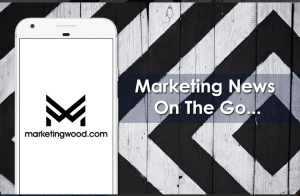Facebook, on February 19th bought WhatsApp, the mobile messaging service for $19 billion of which $4 billion in cash, $12 billion in shares and $3 billion in restricted share units that will be granted to WhatsApp founders and employees. The announcement came less than a week after Rakuten bought Viber, another popular messenger application, which was one of WhatsApp’s biggest competitors, for $900 million.
Facebook also announced it will keep WhatsApp as a separate messaging service and not introduce ads, at least not in the near future as they think that would not be beneficial at present time, but focus on growth of its user base and improvement of service. WhatsApp currently does not display any ads, in addition to text messaging it has support for sending images, video clips and recorded audio messages along with many emoticons, but it does not offer direct calls. It supports multiple platforms such as Android, Blackberry OS, Windows Phone, iOS and Nokia Symbian Series 40 platform.
 This is Facebook’s second big acquisition so far, the first one being Instagram, a photo sharing service, in 2012 for $1 billion and in 2013 Facebook offered $3 billion to Snapchat a photo messaging application but they declined the offer. Facebook expects to have multiple benefits from the acquisition such as large user base and advantage over Twitter which is also looking to develop and popularize their direct messaging. They note another benefit in comparison with Facebook messenger, that is people treat WhatsApp more as a real time messaging app than Facebook messenger, which most of the people use to chat with their Facebook friends but in more informal, mail like manner where people don’t necessarily expect instant response; also they can only use it with their friends on Facebook in contrast to WhatsApp for which the only requirement is to have the person’s number in the phonebook, and they are automatically added to WhatsApp without the need for sending an invitation.
This is Facebook’s second big acquisition so far, the first one being Instagram, a photo sharing service, in 2012 for $1 billion and in 2013 Facebook offered $3 billion to Snapchat a photo messaging application but they declined the offer. Facebook expects to have multiple benefits from the acquisition such as large user base and advantage over Twitter which is also looking to develop and popularize their direct messaging. They note another benefit in comparison with Facebook messenger, that is people treat WhatsApp more as a real time messaging app than Facebook messenger, which most of the people use to chat with their Facebook friends but in more informal, mail like manner where people don’t necessarily expect instant response; also they can only use it with their friends on Facebook in contrast to WhatsApp for which the only requirement is to have the person’s number in the phonebook, and they are automatically added to WhatsApp without the need for sending an invitation.
 WhatsApp is a subscription service, it is free for the first year and then it costs about a dollar a year, so it could provide Facebook steady flow of money if they choose to continue with that subscription model. Facebook could also have some use of mobile phone numbers of WhatsApp users and gain large user base from outside of USA. Another benefit is having such popular rival in their own hands thus lessening competition and preventing the possibility of it falling in to the hands of Google for example and losing significant number of new users. At the end of 2013 WhatsApp had about 400 million active monthly users.
WhatsApp is a subscription service, it is free for the first year and then it costs about a dollar a year, so it could provide Facebook steady flow of money if they choose to continue with that subscription model. Facebook could also have some use of mobile phone numbers of WhatsApp users and gain large user base from outside of USA. Another benefit is having such popular rival in their own hands thus lessening competition and preventing the possibility of it falling in to the hands of Google for example and losing significant number of new users. At the end of 2013 WhatsApp had about 400 million active monthly users.
Messaging apps had a rapid increase of users because they started on mobile platform in contrast to Facebook and Skype for example; they started on desktop so they had to make take their users transition to mobile with their apps which took more effort and time than just starting out on mobile which is very significant platform today and is still growing.




Mark zuckerberg is really genius , he has a great business plan.